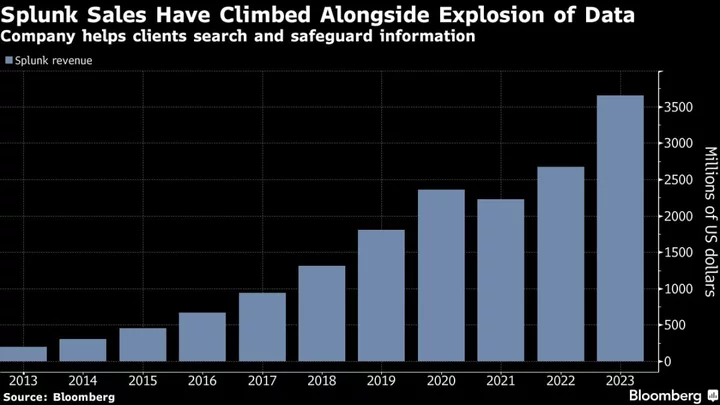
Wingman Buffed and Moved to Care Packages in Apex Legends Season 19
In Apex Legends Season 19, the Wingman not only received a damage buff but also was moved to Care Packages, making the weapon less common on the map.
2023-10-27 02:55

When Does NBA 2K24 Season 2 Start?
NBA 2K24 Season 2 starts on Friday, Oct. 20 at 11 a.m. ET with new improvements to shooting, dunking, stealing, and more.
2023-10-12 03:21

Associated Press, OpenAI partner to explore generative AI use in news
News publisher Associated Press said on Thursday that it had reached an agreement with OpenAI to share access
2023-07-13 23:22

Can't Afford a New iPhone? Upgrade to iOS 17 on Sept. 18
Apple’s latest mobile operating systems will be available to download on Sept. 18, Apple announced
2023-09-13 03:52

Vast Advances Utility-Scale Concentrated Solar Thermal Plant as Worley Commences Engineering
SYDNEY, Australia--(BUSINESS WIRE)--Jun 5, 2023--
2023-06-05 19:28

StrikeReady Sweeps 2023 Golden Bridge Awards, Winning Startup of the Year in AI and Security Categories
PALO ALTO, Calif.--(BUSINESS WIRE)--Jul 18, 2023--
2023-07-18 18:22

Domino's will deliver your next pizza without an address
An address is typically required when getting food delivered. Not for Domino's.
2023-06-20 20:47

How tall is Ninja? Exploring pro gamer and YouTuber's height compared to his wife Jessica Blevins
Photos of Ninja towering over his wife, Jessica Blevins, have made pro streamer's fans curious about his height
2023-08-15 16:25

VicOne Launches Smart Cockpit Protection Solutions for Automotive OEMs
DALLAS & TAIPEI, Taiwan--(BUSINESS WIRE)--May 23, 2023--
2023-05-23 22:23

Watch Communications Expands Business in Four Midwestern States with Tarana ngFWA
LIMA, Ohio & MILPITAS, Calif.--(BUSINESS WIRE)--Jul 25, 2023--
2023-07-25 20:28

Twitter aka X changes ad labels, makes promoted tweets less obvious
The big changes at X, formerly known as Twitter, just keep coming this week. Users
2023-07-29 18:21

Wild boar in Germany are strangely radioactive – now scientists know why
Wild boar in southeastern Germany have long contained high levels of radioactive substances, which has been attributed to the 1986 Chernobyl nuclear disaster. But as radioactivity levels have fallen in other animals, they have stayed much the same among boar. Now, scientists have worked out the secret behind the so-called “wild boar paradox”. Research shows there is another culprit for the high levels of radioactivity: nuclear weapons tests from the mid-20th century. And both the weapons and the nuclear reactor meltdown continue contaminating the boar because of their diet. While the muscular boar seem healthy, the dangerous levels of radioactive caesium, the main contaminator, have prompted people to stop hunting them. In turn, there is now an overpopulation issue. “Our work reveals deeper insights into the notorious radio-cesium contamination in Bavarian wild boars beyond the total radionuclide quantification only,” radioecologist Felix Stäger from Leibniz University Hannover wrote in a paper. After a nuclear incident, radioactive materials can pose a significant threat to ecosystems. This happened after the Chernobyl meltdown in 1986, where there was an increase in radioactive caesium contamination. The main component of this, caesium-137, has a half-life of about 30 years, meaning it loses its radioactivity fairly quickly. However, caesium-135, which is created via nuclear fission, is far more stable. It has a half-life of more than 2m years. The ratio of cesium-135 compared to cesium-137 can help us work out where the cesium came from. A high ratio indicates nuclear weapon explosions, while a low ratio points to nuclear reactors like Chernobyl. So the researchers analysed caesium levels from 48 wild boar meat samples from 11 regions of Bavaria. It turns out that nuclear weapons testing was responsible for between 12 per cent and 68 per cent of the unsafe contamination in the samples. “All samples exhibit signatures of mixing,” wrote the researchers. “Nuclear weapons fallout and [Chernobyl] have mixed in the Bavarian soil, the release maxima of which were about 20−30 years apart.” So while Chernobyl remains the main source of caesium in wild boar, about a quarter of the samples showed enough contributions from weapons fallout to exceed safety limits even before the reactor meltdown comes into account. And because wild boar eat so many truffles, it has been exacerbated. The fungus absorbs high levels of contamination from both sources. Wild boars' diets, which include underground truffles, have absorbed varying levels of contamination from both sources, which has contributed to the animals' persistent radioactivity. “This study illustrates that strategic decisions to conduct atmospheric nuclear tests 60−80 years ago still impact remote natural environments, wildlife, and a human food source today,” the authors concluded. The study was published in Environmental Science & Technology. Sign up to our free Indy100 weekly newsletter Have your say in our news democracy. Click the upvote icon at the top of the page to help raise this article through the indy100 rankings.
2023-09-01 00:53
You Might Like...

Why thousands of dead fish mysteriously washed up on a beach in the US

India landed on the Moon for less than it cost to make Interstellar

iPhone maker Foxconn buys huge site in India tech hub

Modern Warfare 3 Perks: All Boots Explained

Core Scientific Announces June 2023 Production and Operations Updates

Coca-Cola's newest flavor is aimed at gamers

MrBeast: How to be part of YouTuber's Cash Grabbing gaming challenges? Here are 5 easy steps

Cisco is Buying Splunk for $28 Billion. Here's What Splunk Does
